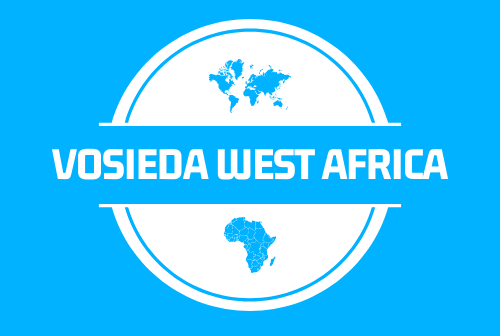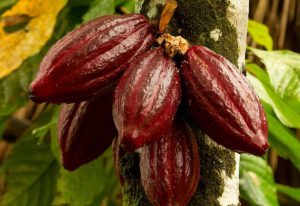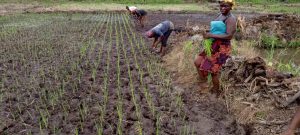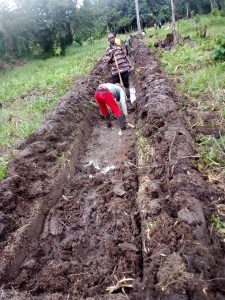The context
Agriculture is critical to Liberia’s economic growth and development, generating more than one-fifth of the country’s economic output. However, much of Liberian agriculture lags behind more developed systems. Very little cropland is irrigated, the livestock and cropping systems are 95 percent smallholder and rainfed, and the use of improved seeds and fertilizers remains limited. Furthermore, 70 to 90 percent of farming work is done manually, with no machinery or draft animals being used.
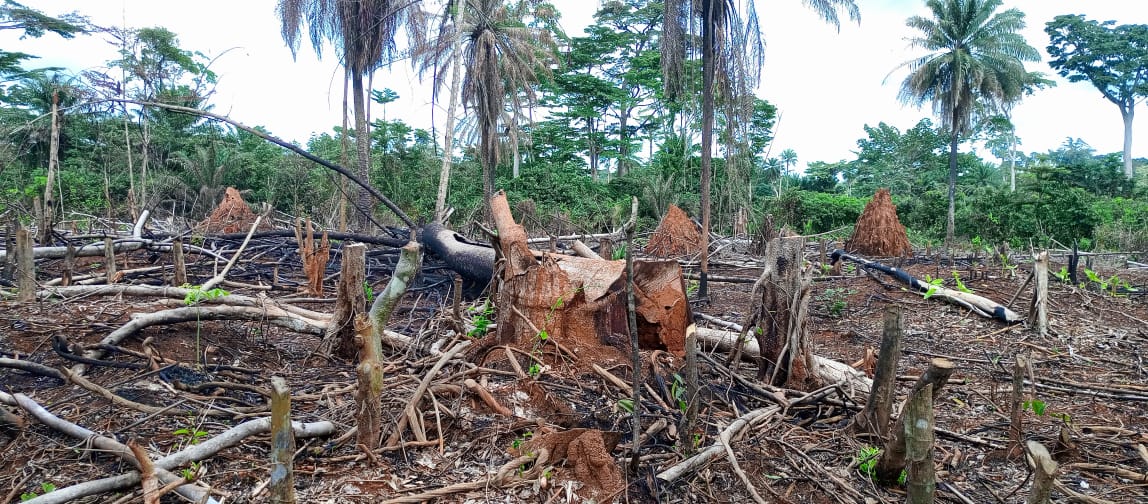
Climate change is presenting additional challenges to agricultural development in Liberia as its impacts become more visible each year. In recent times, Liberia’s weather has become unpredictable, with extreme weather events such as heavy rainfall, flooding, and varying high temperatures becoming more frequent. Thus, local farming communities and farmers throughout the country are more susceptible to the adverse effects of climate change. However, traditional farming practices are also exacerbating climate change in Liberia through land-use changes, including soil disturbance and deforestation, such as slash-and-burn farming systems, shifting cultivation, and rain-fed agriculture systems. These practices further stress important forest stocks, causing deforestation and the destruction of biodiversity. Slash-and-burn and shifting cultivation practices release greenhouse gases, notably carbon dioxide, through tree cutting and vegetation burning.
To address the impact of climate change on smallholders and reverse massive deforestation, the Swedish International Development Agency (SIDA), through the Swedish Embassy in Monrovia, is supporting VOSIEDA to implement the “Building Community Resilience to Climate Impacts through Climate-Smart Small-Scale Farming” project. The project aims to empower Liberian smallholder agriculture and food systems to adapt to climate change in effective ways, which would improve the lives of millions living in poverty and accelerate economic growth.
The Project / Solutions
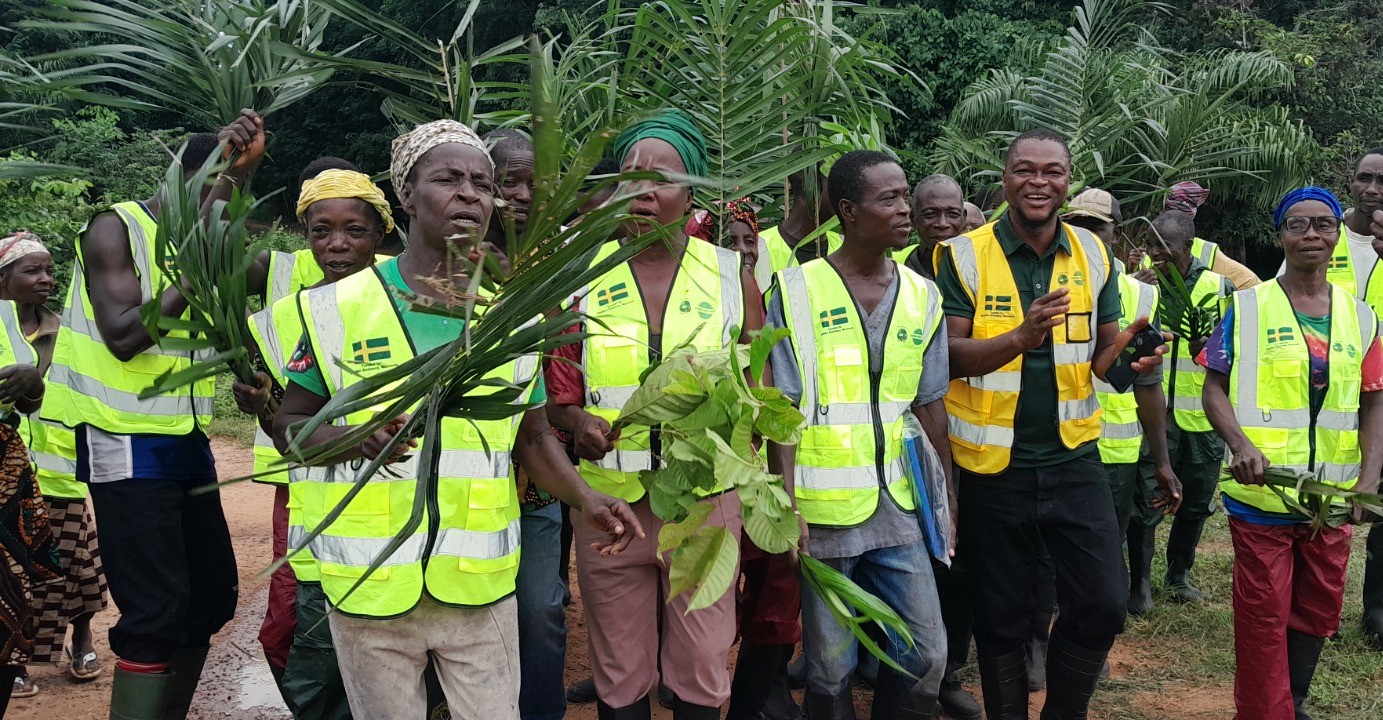
In Northern Nimba County, Liberia, VOSIEDA is integrating agroecology and climate-smart agricultural practices to address deforestation and the climate crisis. The project aims to promote participatory, multi-stakeholder collaborations and climate-informed sustainable agricultural innovations. Additionally, the project is implementing agroecological practices and prioritizing co-created, diversified livelihood strategies to decrease deforestation and enhance land productivity.
Agroecology & climate-smart agriculture (CSA)
Climate-smart agriculture is an approach to agriculture that addresses interlinked challenges of food security and climate change. CSA seeks three core outcomes:
- Sustainably increase agricultural productivity, to support equitable increases in farm incomes, food security, and development
- Adapt and build the resilience of agricultural and food security systems to climate change at multiple levels
- Reduce greenhouse gas emissions from agriculture (including crops, livestock, and fisheries)
Agroecology is an approach to land management that applies ecological and social concepts to the design and management of food and agricultural systems. It seeks to optimize the interactions between plants, animals, humans, and the environment while considering crucial social aspects for a sustainable and just food system.
The FAO’s 10 Elements of Agroecology
- Diversity, synergies, efficiency, resilience, recycling, co-creation, and knowledge sharing (describe common characteristics of agroecological systems, foundational practices, and innovation approaches)
- Human and social values and culture and food traditions (context features)
- Responsible governance and circular and solidarity economy (enabling environment)
Project Benefits
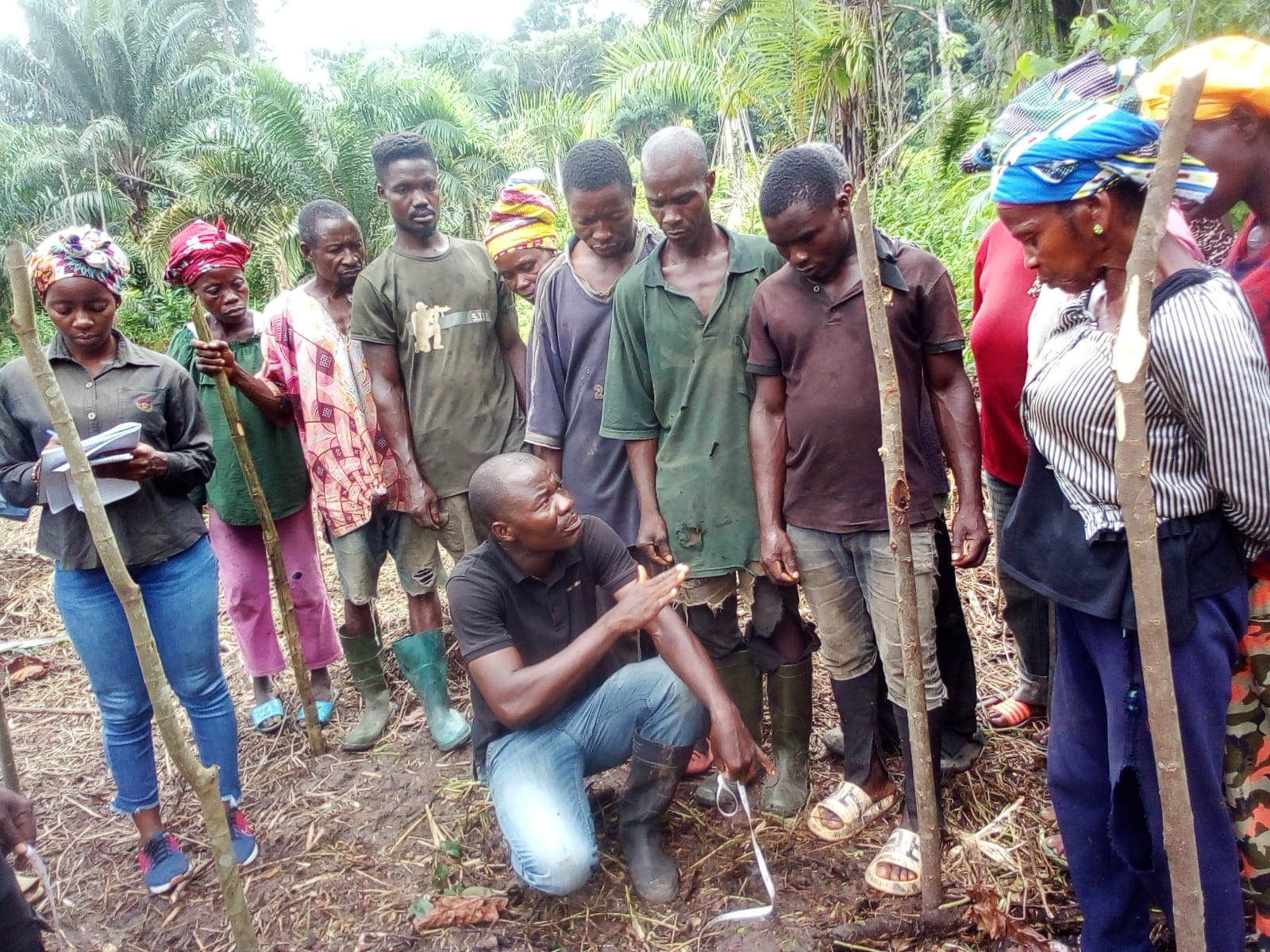
The project is bringing multiple benefits:
• Avoiding deforestation to mitigate climate change
• Managing the impact of smallholder farming on wildlife and the local environment.
• Giving local farmers the ability to farm in a way that suits their community.
Before the project, farmers in Douplay, Gbehlay-Geh District, were experiencing food insecurity, poverty, and massive deforestation. “My family and I had never heard about agroforestry before this project. Therefore, we constantly cleared tropical forests to plant rice and sugarcane. Through this project, we learned that agroforestry is the practice of combining trees and farming. It demonstrates how food production and nature can co-exist,” says Jenet Mehn, a 32-year-old farmer from Douplay. “We also learned about farming in the lowlands instead of migrating from place to place every year to secure fertile land. Thanks to agroecology and Climate-Smart Agricultural (CSA) practices,” she adds.
Solution to Deforestation
Jenet is not alone. Combining CSA and agroecological approaches is a win-win situation. For example, grazing farm animals under trees offers them shelter and fodder. Additionally, their manure enriches the soil. Planting trees on land typically used to grow cereal crops can also provide another crop, such as fruit, nuts, or timber. This provides another income stream for farmers and safeguards soil from erosion, as the tree’s deep roots help create a healthy soil structure.
In Nimba, a county known as Liberia’s food basket, deforestation is extremely high among smallholder farmers. However, by combining CSA and agroecological approaches, such as developing lowlands, applying compost or organic fertilizers, and using improved local seeds, etc., smallholder farmers are avoiding deforestation while producing healthy diets sustainably. Combining these approaches is a game changer, and by working with nature, we can tackle climate change.

We are urging the Government of Liberia to formulate a policy and present a distinct strategy to support smallholder farmers in drastically reducing their dependence on nitrogen fertilizers, pesticides, and antibiotics. This should be done in consideration of climate, nature, and health by offering suitable alternatives such as the VOSIEDA climate-smart Project, which is being supported by the Swedish International Development Agency (Sida) through the Swedish Embassy in Monrovia.

